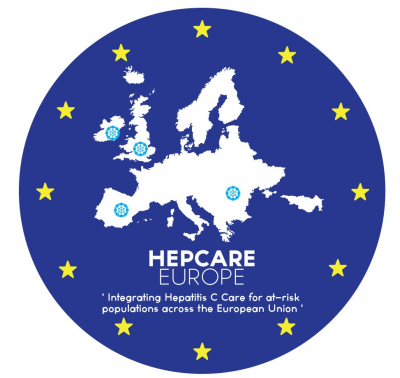Project Summary
The HepCare Europe project focuses on providing an 'integrated care' model for HCV treatment based on the joint participation of primary and speciality care practitioners to allow for more efficient use of limited specialist resources. The project:
- Identifies those not accessing care, by using rapid HCV testing.
- Provides peer support (using community-based organisations) to assist those identified with HCV to access care.
- Develops nurse liaison links so that the secondary caregivers go to the patient, rather than the patients going to the secondary caregivers.
Patients are tested in the community and have their HCV evaluated in the community by means of a novel fibroscan test, which has replaced liver biopsy, to assess the degree of hepatic impairment caused by HCV, and community based treatments are piloted. Other supports to patients include interventions to help reduce or cease alcohol consumption, which is a significant problem among these vulnerable individuals.
In addition to outreach, the project involves education of caregivers and patient groups about HCV and the new curative treatments available along with cost-effectiveness evaluations of the interventions planned.
The team at UCL will lead on the HepFriend work package to assist in vulnerable populations accessing care in Hepatitis C in the homeless in London using peer support. Other teams from our European partners will be trained to deliver their own peer schemes through knowledge sharing and collaboration.
Objectives:
i. To recruit, train and support peers to provide HCV testing and pre-treatment assessments
ii. To use the peer model to improve care integration and HCV treatment adherence and outcomes using a community care pathway.
iii. To develop and pilot a peer level harmonisation intervention linking HCV to other diseases of the homeless population.
iv. Pilot a peer led harm minimisation intervention titled "Positive About Being Negative".
v. To determine the feasibility, acceptability and sustainability of this model.
 Close
Close


